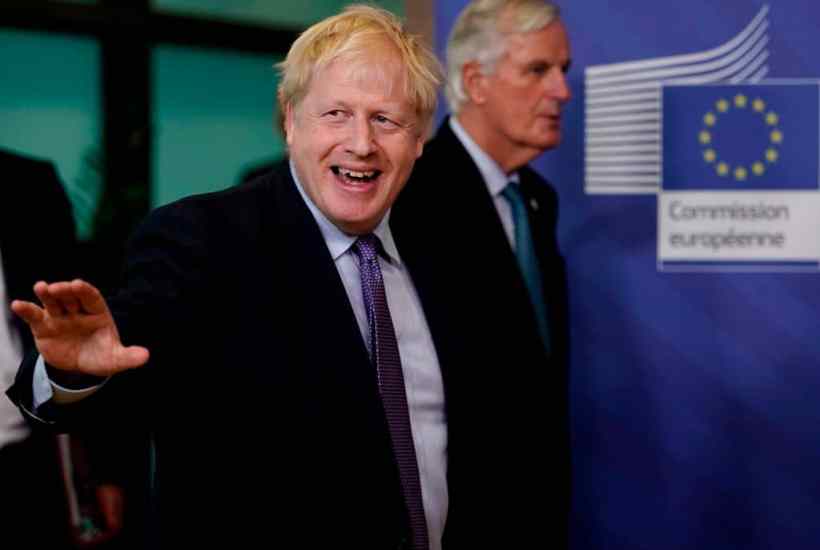Three, five, or perhaps even ten whole minutes. In a more civilised, parallel universe, perhaps Europe’s big wigs would have allowed a slightly more dignified period of silence following Boris Johnson’s resignation speech before cracking open the foie gras and champagne. In this one, however, the gloating started immediately.
‘The departure of Boris Johnson opens a new page in relations with Britain,’ wrote ex-chief Brexit negotiator Michel Barnier. ‘Boris Johnson’s reign ends in disgrace, just like his friend Donald Trump,’ tweeted the former Brexit coordinator of the European parliament Guy Verhofstadt. No doubt we will see a lot more in that vein in the hours and days ahead. But hold on. As so often in the past, the Brussels elite is badly mis-reading British politics. Whoever succeeds Johnson as PM will be tougher for Brussels to deal with, not easier.
True, at first glance they may be relieved to see Johnson depart the stage. He was the leader of the face of the campaign that took Britain out of the EU. And it was Boris’s thumping majority in the 2019 election that sealed the UK’s departure from the EU, on terms that, at least nominally, allowed Britain to break free of the EU’s regulatory orbit. The new PM, whoever he or she is, will have less baggage, and they may well have space to reset relations with our continental neighbours. Here’s the problem, however: unless by some miracle Rory Stewart emerges as the new leader of the Conservative party it is not going to happen.
There are two reasons for that, one minor and one major. First, winning the leadership of the Conservative party does not involve making friends among French, Belgium, and German politicians. It involves securing the votes of the members of the Conservative party. That electorate is both overwhelmingly eurosceptic, and, just as significantly, will need a lot of reassurance that candidates are not closet Remainers. To have a chance of winning, any potential leader will have to talk tough on Europe.
Secondly, and more importantly, the new Tory leader is far more likely to want to diverge from the Brussels regulatory machine. Johnson campaigned to leave the EU, but then set about turning the UK into a very European social democracy. Think France, with less wine and harder cheese. He had zero interest in the low-tax, deregulated version of Brexit. His successor is going to find that model far more appealing, not least because they will have to find some way of re-starting growth. Whoever is in Downing Street in the autumn will start diverging radically from Brussels rules. One thing is certain: that will set up more conflict.
A new British PM may change the way the UK deals with the rest of the world in many ways. But a close relationship with Brussels, Paris and Berlin is not one of them. In reality, the likes of Barnier and Verhofstadt are going to be disappointed all over again.
Got something to add? Join the discussion and comment below.
Get 10 issues for just $10
Subscribe to The Spectator Australia today for the next 10 magazine issues, plus full online access, for just $10.





















Comments
Don't miss out
Join the conversation with other Spectator Australia readers. Subscribe to leave a comment.
SUBSCRIBEAlready a subscriber? Log in